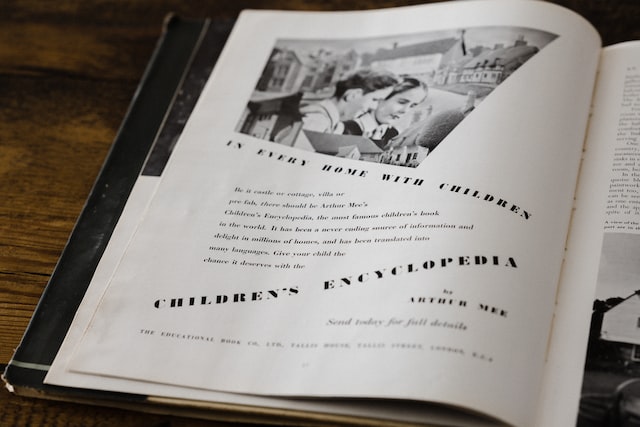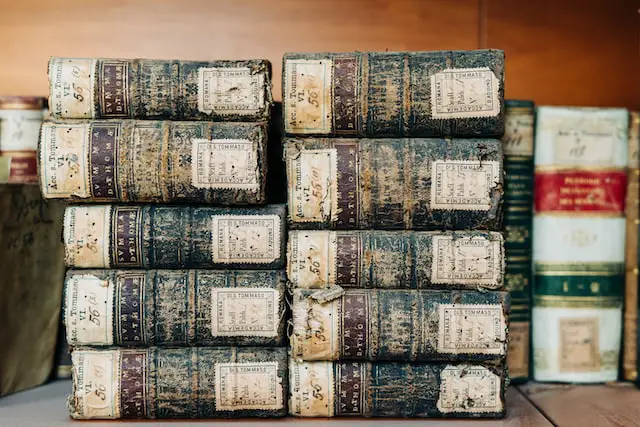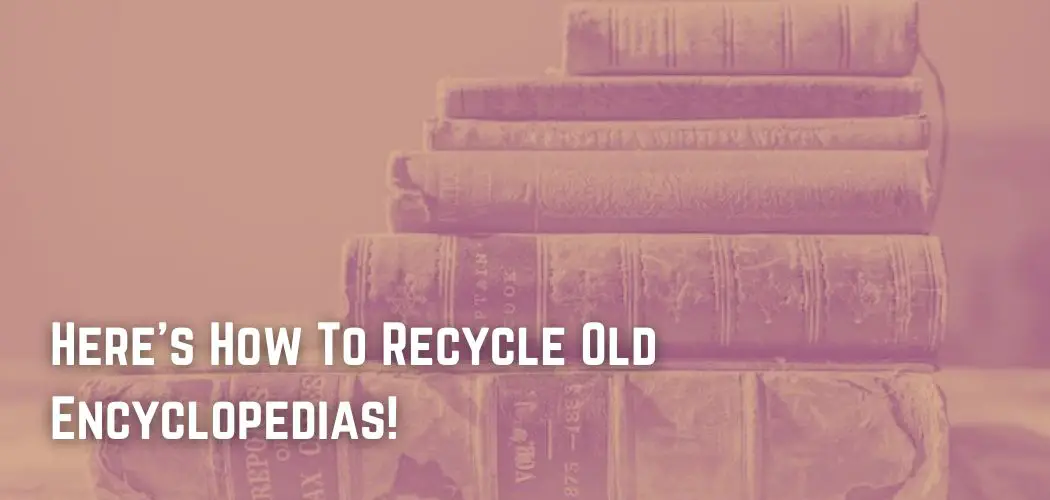Encyclopedias have been reliable sources of information about everything from history to science for more than 2,000 years. Users must purchase new copies to stay current with the most recent information.
Since a single edition of an encyclopedia can have more than twenty volumes, it’s easy to see how someone could quickly end up with a lot of these books and not know what to do with them.
Also, technology is making the world move away from paper sources of information and toward digital ones.
Today, you can look up the whole encyclopedia on your computer or smartphone with the touch of a finger, so you may not need your print encyclopedias anymore.
At this point, you may consider recycling your volumes in order to free up space. But is this realistic? Continue reading to learn everything you need to know about encyclopedia recycling.
Compostable Or Not?
Do you consider yourself an expert gardener? Consequently, composting should not be a foreign concept. You can compost paper, which is the material used to make encyclopedia pages.
Tear the pages into fragments. Before composting, soaking them in water will expedite the biodegradation process. You will be left with the hardcover, which you should dispose of in the garbage.

Also composed of biodegradable elements, it will shortly decay. You may also consider composting it, but it will take a substantially longer time than the rest of your compost mixture.
Hardcovers are meant to be durable in order to safeguard the pages within. It will eventually fail, but only when time is on its side.
Now, we only advocate composting old encyclopedias when they are no longer eligible for sale or gift.
Does It Have Any Value?
To begin with, a book’s age does not always define its value. Some vintage books are quite valuable, but even new books may be expensive.
Similarly, many antique novels are useless compared to modern ones. It depends on desire—what individuals seek.
Regarding outdated encyclopedias, some individuals collect them. If the books are more than a century old, obtain their value from a rare bookseller.
You may also sell these items during a garage sale. Selling your old encyclopedias for a few dollars won’t harm you if you’re wanting to free up some room in your house.
Call your local bookshop to see if they are interested in purchasing old encyclopedias. Alternatively, you may utilize the Internet; several websites help book sales. Who knows, you could even meet a collector of rare books online.

Generally speaking, you should not sell encyclopedias that are ripped, soiled, missing pages, or in otherwise poor shape. Nonetheless, this restriction does not apply to uncommon encyclopedias.
Before selling your old encyclopedia, conduct the necessary research.
Amazon is one of the most prominent online retailers of secondhand books, but there are many more, including eBay, Powell’s Books, BookScouter, and Half Price Books.
The majority of rare book collectors now seek for encyclopedias older than a century. Even better, if you have the entire collection, you may make between $15 and $25.
Give Them To A Charity
This is one of the simplest and most efficient methods to dispose of outdated encyclopedias. Simply contact your local library or school to determine whether they are willing to accept your books.
Alternatively, you may donate them to a person in need using websites such as Freestyle.org or organizations like Goodwill and Salvation Army. As long as the books are in decent condition, there will undoubtedly be someone who needs them.
Why Should They Be Recycled?
The disposal of encyclopedias will not necessarily hurt the environment. The paper is biodegradable, after all. However, recycling has some advantages that are worth considering. Here are four compelling arguments for recycling encyclopedias:

Reducing Emissions
Deforestation is among the primary causes of greenhouse gas emissions. This is due to the fact that when trees are felled, the carbon dioxide they have collected during their lifetime is released into the atmosphere.
The outcome is an increase in atmospheric carbon dioxide with fewer plants to absorb it. By recycling your encyclopedias, you conserve forests and mitigate the effects of deforestation on global warming.
Recycling old encyclopedias is a wonderful method to clear up space in your home, environmental concerns aside.
Due to the necessity of purchasing new versions of encyclopedias on a regular basis, encyclopedias can consume considerable shelf space over time. Recycling is an excellent method to dispose of old books that you no longer need.
Eliminating Landfill Waste
Paper and paperboard make up the majority of municipal solid waste; therefore, recycling them may save a significant amount of landfill space.
Recycling your encyclopedias decreases the quantity of garbage that ends up in landfills, freeing up more room for non-recyclable solid waste.
Forest Protection
When recycled paper is utilized to create new paper goods, fewer trees are cut down to provide raw materials.

Over 30 million trees are chopped down each year in the United States to make textbooks. Recycling encyclopedias can contribute substantially to halting this deforestation.
Can Antiquated Encyclopedias be Recycled?
Recycling is simple and healthy for the environment, but can outdated encyclopedias be recycled? The correct disposal of these old books is crucial for obvious reasons.
Well, you can recycle old encyclopedias, but you can’t simply toss them in the trash. You must instead prepare the books so that they are appropriate for recycling.
It is a traditional hardcover book, thus the external cover is constructed of a variety of materials. Because the hardcover consists of leather, fabric, and thick paper, recycling it with other paper trash will result in contamination.
Therefore, this portion must be removed prior to placing the leaves in the recycling bin. If possible, remove the front and back covers using a utility knife and cut them into smaller pieces.
The leaves can then be recycled with other paper debris. Alternatively, determine if your city accepts used hardcover books.
Conclusion
Recycling your old encyclopedias is one of the best ways to dispose of them if you no longer need them.
Not only does it help you clear space, but it also contributes greatly to environmental conservation. It is recommended to donate for reuse any outdated books that might still be useful to others.





